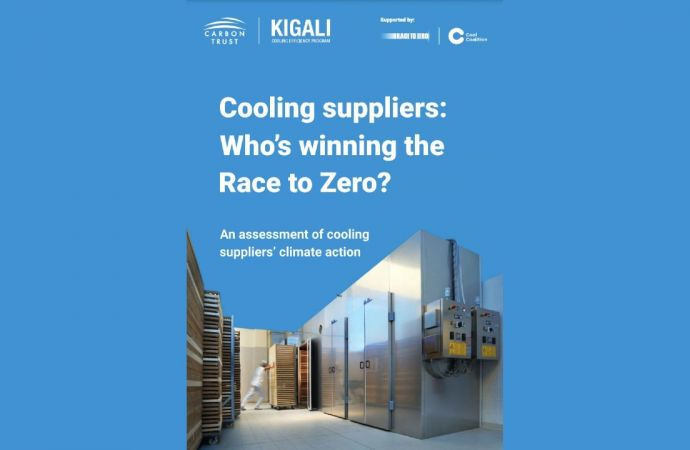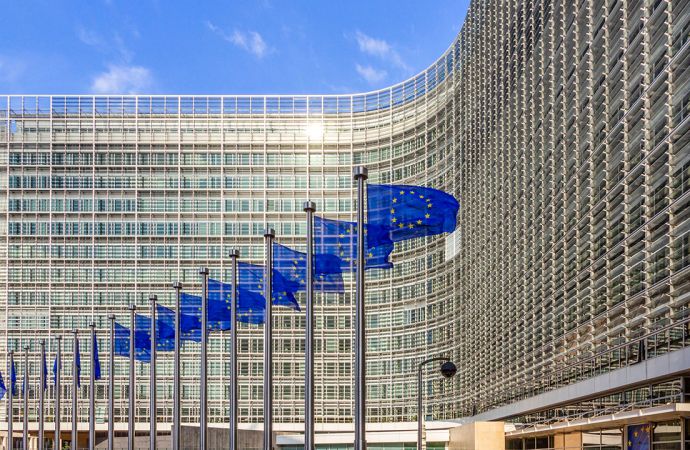With the funding from the Multilateral Fund for the Implementation of the Montreal Protocol, UNIDO has helped convert a production line for residential air conditioners to ozone and climate-friendly propane in China, improving energy efficiency of systems by 10-15%. This project provides useful experience for other developing countries seeking alternatives to ozone-depleting substances, especially in West Asia and Africa.

The conversion of the production line from ozone-depleting R22 to an alternative refrigerant propane (R290), which does not deplete the ozone layer and has a very low global warming potential (GWP), took place at Midea, one of the major air-conditioner producers in China. The air conditioner production line converted by the United Nations Industrial Development Organisation (UNIDO) has a production output of 200,000 units per year.
Reducing emissions by almost 1 million tCO2eq per year
The project contributes towards China’s commitment to freeze the consumption of hydrochlorofluorocarbons (HCFCs) by 1 January 2013, in line with the country’s obligations under the Montreal Protocol. In addition, this project could have an important impact on the entire Chinese market since hydrocarbons as an alternative technology to HCFC-22 with minimal climate impact has proven as viable and can now be adopted by other refrigeration and air conditioning manufacturers. The project has also significant demonstration value for the safe manufacturing, installation and servicing of products with flammable refrigerants.
Ultimately, the environmental impact of the project is the following:
Useful experience for developing countries with high ambient temperature
The conversion at Midea serves as an example for many developing countries, experience from which will be useful for other UNIDO projects in West Asia (Middle East and Near East), as well as in Africa.
In West Asian countries, the phase-out of HCFCs has become a challenge as at present the most commonly employed alternatives to HCFC in the air-conditioning sector in the region have high GWP. Therefore, UNIDO, in cooperation with the United Nations Environment Programme (UNEP), has developed a project for countries in the region, which aims to shed light on potential sustainable technologies for countries with high ambient temperatures. Midea’s experience with R290 is very important in order to demonstrate to West Asian countries the performance, as well as the efficiency and safety features, of the new system.
Demonstration of R290 AC in UNIDO meeting with African countries
In late November 2013, UNIDO organized an expert group meeting for the national ozone units of 21 sub-Saharan African countries to discuss challenges and opportunities during the phase-out of HCFCs in Africa. A prototype air-conditioning unit was shipped from Midea in China to UNIDO’s headquarters for the meeting. During this event, UNIDO and the German development agency, GIZ, demonstrated the functioning of the Midea air conditioning unit working with R290. UNIDO was able to showcase the safety issues related to the operation, maintenance and servicing of R290 air conditioners. This was a valuable learning opportunity, which could lead to similar projects in other countries.
Reducing emissions by almost 1 million tCO2eq per year
The project contributes towards China’s commitment to freeze the consumption of hydrochlorofluorocarbons (HCFCs) by 1 January 2013, in line with the country’s obligations under the Montreal Protocol. In addition, this project could have an important impact on the entire Chinese market since hydrocarbons as an alternative technology to HCFC-22 with minimal climate impact has proven as viable and can now be adopted by other refrigeration and air conditioning manufacturers. The project has also significant demonstration value for the safe manufacturing, installation and servicing of products with flammable refrigerants.
Ultimately, the environmental impact of the project is the following:
- 240 tonnes of HCFC-22, or 13.2 tonnes of ozone-depleting potential, were phased-out;
- 967,490 tonnes of CO2 equivalent emission reduction per year.
Useful experience for developing countries with high ambient temperature
The conversion at Midea serves as an example for many developing countries, experience from which will be useful for other UNIDO projects in West Asia (Middle East and Near East), as well as in Africa.
In West Asian countries, the phase-out of HCFCs has become a challenge as at present the most commonly employed alternatives to HCFC in the air-conditioning sector in the region have high GWP. Therefore, UNIDO, in cooperation with the United Nations Environment Programme (UNEP), has developed a project for countries in the region, which aims to shed light on potential sustainable technologies for countries with high ambient temperatures. Midea’s experience with R290 is very important in order to demonstrate to West Asian countries the performance, as well as the efficiency and safety features, of the new system.
Demonstration of R290 AC in UNIDO meeting with African countries
In late November 2013, UNIDO organized an expert group meeting for the national ozone units of 21 sub-Saharan African countries to discuss challenges and opportunities during the phase-out of HCFCs in Africa. A prototype air-conditioning unit was shipped from Midea in China to UNIDO’s headquarters for the meeting. During this event, UNIDO and the German development agency, GIZ, demonstrated the functioning of the Midea air conditioning unit working with R290. UNIDO was able to showcase the safety issues related to the operation, maintenance and servicing of R290 air conditioners. This was a valuable learning opportunity, which could lead to similar projects in other countries.
MORE INFORMATION
Related stories



